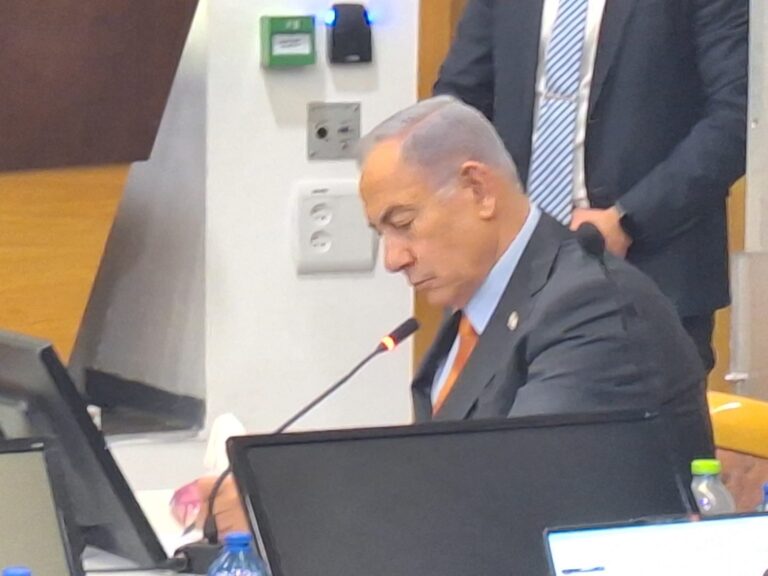 They are reports that Prime Minister Binyamin Netanyahu’s negotiating strategy includes splitting Yesh Atid and Bayit HaYehudi in the hope of bringing the dati leumi party into the coalition without Yesh Atid. According to the party leaders, Naftali Bennett and Yair Lapid, the prime minister will not succeed since they remain a unit regarding entering the government or opposition with their combined 41 seats.
They are reports that Prime Minister Binyamin Netanyahu’s negotiating strategy includes splitting Yesh Atid and Bayit HaYehudi in the hope of bringing the dati leumi party into the coalition without Yesh Atid. According to the party leaders, Naftali Bennett and Yair Lapid, the prime minister will not succeed since they remain a unit regarding entering the government or opposition with their combined 41 seats.
That said, the coalition talks began this way but after meeting with Naftali Bennett and Yair Lapid a number of times, the prime minister appears to have arrived at the opinion that he may preefer
In a related matter, Bayit Yehudi MKs told the media that reports of in-fighting in the party and dissatisfaction with Bennett’s performance are “nonsense”, blaming Prime Minister Binyamin Netanyahu for feeding the media messages that he feels will advance his coalition building efforts.
The daily Maariv reports that Likud/Beitenu negotiators are working another front simultaneously, clearly intended to establish a coalition without Yesh Atid (19 seats) and hoping to bring Bayit Yehudi (12 seats) in alone. This appears highly unlikely at present based on Bennett’s address in Knesset, which is quite in line with the share the burden message delivered a day earlier by Lapid.
Five members of the Labor Party were offered a “dream deal”, to break away from the party and enter the coalition as cabinet ministers. The report states the prime minister is willing to give the five Labor rebels the defense, industry & trade, and welfare ministries for their cooperation. If they agree, that will give Likud/Beitenu (31 seats) and additional five, which Netanyahu is confident will be added to Kadima (2) and The Movement (6), permitting a coalition with the chareidi parties; Shas (11) and Yahadut Hatorah (7) for a total of 62, a narrow majority in the 120-seat Knesset.
(YWN – Israel Desk, Jerusalem)











One Response
That is how it is supposed to work in a parliamentary system (legislature picks the prime minister) with proportional representation (all groups represented in proportion to their population if they meet a minimum standard). This “haggling” is a feature, not a bug.
An alternative is a presidential system like the USA, in which gridlock develops in the people choose one party for president and a different one for the legislature. A parliamentary system with single member constituencies usually is better at forming a coalition, but it keeps significant minorities out of the legislature.